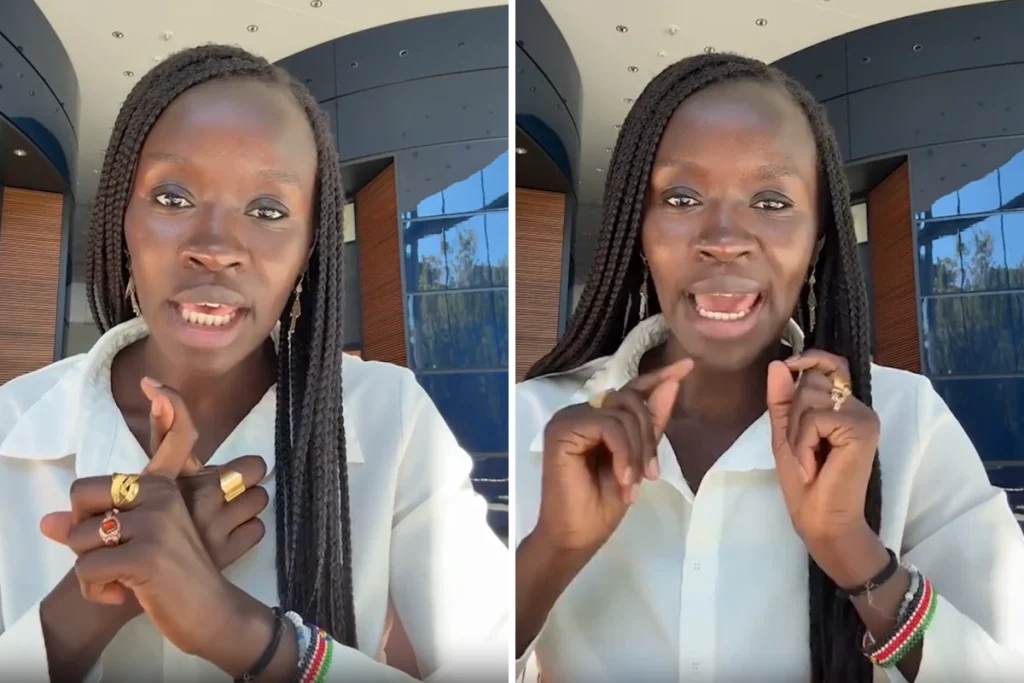Millennial Woman Reflects on Strict Parenting Rules That Shaped Her Success
A viral TikTok video has sparked conversation about parenting styles after a millennial woman shared the six non-negotiable rules her immigrant father enforced during her childhood. Anger Dok, known online as Juzza, posted about her upbringing that initially felt restrictive but ultimately laid the groundwork for her current success as a Yale University public health student. Her story illuminates the tension between childhood frustration and adult appreciation for structure, while also highlighting cultural differences in parenting priorities.
“I often felt very frustrated growing up because my parents enforced much stricter rules compared to my friends’ families,” explains the now 28-year-old Dok, who immigrated to the United States from South Sudan in 2000. The rules included an early morning routine requiring her to wake at 5-6 a.m. and stretch daily, mandatory monthly reading, educational screen time requirements before recreational computer use, and a strict policy linking sports participation to maintaining at least a B+ grade average. Additionally, her parents required musical instrument training through freshman year (Dok played violin and clarinet) and continuous participation in team activities until graduation. While these expectations seemed excessive compared to her peers’ experiences, Dok now recognizes their value: “As a child, I didn’t like it when they told me, ‘When you get older, it’ll make sense.’ But now, I see they were right.”
The morning stretching routine, which Dok’s father learned from one of his own teachers, wasn’t just about physical activity but served a deeper purpose of waking up the body and mind. “He would tell us that stretching is important for blood circulation and fitness,” explains Nyok Dok, Anger’s 62-year-old father. Though Anger admits she primarily disliked the grade requirements, which “felt like such a high standard,” she now understands that her parents were cultivating discipline rather than merely pursuing academic achievements. This retrospective appreciation came after she left home for university and suddenly found herself without external structure. “I no longer had anyone enforcing structure, and I saw how much I relied on it,” she reflects. “Without it, I felt disorganized, emotionally low, and like I was wasting time.”
The Dok family’s approach reflects broader cultural patterns identified in research. A 2023 Pew Research Center survey revealed notable differences between Black and white parents’ priorities for their children. While 70 percent of white parents emphasized honesty and ethics as extremely important values, 60 percent of Black parents did the same. Conversely, Black parents placed substantially higher importance on college education, with 51 percent viewing a degree as very important compared to just 29 percent of white parents. These differences suggest varied cultural perspectives on what children need most to succeed in American society. For Nyok Dok, whose parenting philosophy centered on “instilling self-confidence in my children and working hard,” the structured approach was intentional: “I think my household rules helped my children to become independent and avid readers, strong personalities and they are disciplined.”
What distinguishes the Dok parents’ approach from mere authoritarianism was their commitment to explaining the reasoning behind their expectations. “My parents didn’t just give orders; they explained the reasons behind their rules,” Anger notes. This transparency created a foundation for her adult confidence and follow-through. She now describes herself as “an intentional person who values daily routines” and believes that her ability to honor small daily commitments translates to greater reliability with major responsibilities. The structure that once felt constraining now appears to have been a gift—one that taught her how to create fulfilling, productive days even without external enforcement.
The public response to Dok’s video, which garnered nearly 5 million views and over 1 million likes since being posted on October 2nd, reveals a widespread admiration for this parenting approach. Comments like “What else he do? I got CEOs to raise” and “The kind of parent I aspire to be” suggest many viewers see value in the structure and expectations the Dok parents established. This positive reception points to a potential cultural shift toward recognizing the benefits of thoughtful structure in childhood development, particularly as young adults like Anger Dok publicly reflect on how early discipline translated into later success. As she navigates her graduate studies at an elite institution, Dok’s story offers a compelling argument for parenting that balances high expectations with clear explanations—an approach that may initially frustrate children but ultimately equips them with the self-discipline needed for adult achievement.















